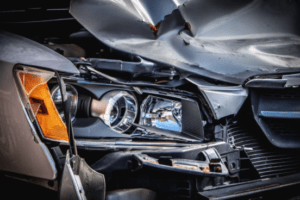Anyone who owns a trailer should have trailer insurance. Insurance will cover you in case of an accident if you are using a trailer for personal purposes. The insurance policy you choose may also cover medical expenses and losses, regardless of whether or not you are at fault in an accident. A commercial trailer license is required if you intend to use your trailer for commercial purposes. You’ll be covered in case of a collision or other accident while transporting goods.
You will need to consider your driving habits and camper insurance cost to determine the best trailer insurance policy. You are less likely to be in an accident if your trailer is used very rarely, especially if you choose safer routes. You might not need the more expensive, more comprehensive coverage. If the trailer is less costly to replace than repair, any coverage beyond the standard liability policy could be unnecessary.
Liability Insurance
 If you cause damage to another vehicle or injures another motorist, liability insurance will pay for any expenses. However, if you are responsible for an accident, your liability insurance won’t cover the costs of your injuries or losses. If you are in an accident with another party, liability insurance will pay for the cost of repairs to your vehicle/trailer and any medical expenses. In most states, liability insurance covers only the minimum coverage.
If you cause damage to another vehicle or injures another motorist, liability insurance will pay for any expenses. However, if you are responsible for an accident, your liability insurance won’t cover the costs of your injuries or losses. If you are in an accident with another party, liability insurance will pay for the cost of repairs to your vehicle/trailer and any medical expenses. In most states, liability insurance covers only the minimum coverage.
If you have auto insurance, is trailer insurance mandatory? Most policies will cover trailer damage under the basic auto insurance policy. You might consider purchasing insurance for your trailer to provide additional protection.
Comprehensive Insurance
Comprehensive insurance covers your trailer against damage or loss off-road. Comprehensive insurance will cover your trailer in the event of vandalism, even if it is left unattended. Comprehensive insurance will cover the cost of repair or replacement if falling trees or a downed powerline damages your trailer. Comprehensive insurance can even cover damage costs resulting from a natural disaster, firestorm, or snowstorm.
Collision Insurance
Collision insurance covers the damage to your vehicle or trailer in case of an accident. Collision coverage is different from liability coverage which covers only damages to other people’s vehicles and injuries. It will protect your medical costs and repairs to your trailer. Many motorists choose to forego collision insurance, as the liability policy of an at-fault party usually covers damages.
This logic means that collision insurance is not necessary if another driver hits you. You can also file a claim under their policy. The law does not guarantee that the responsible party will have insurance. No matter who caused the accident, your collision insurance will pay for all expenses. Comprehensive insurance will pay for purchasing a trailer, new or used if it is stolen.
Contents Coverage
 Contents coverage covers the cost of replacing or repairing any personal property that is stolen or lost when you use your trailer to transport them. Suppose your trailer is occupied by a vehicle, boat, or motorcycle, and it is stolen. In that case, contents coverage will cover the cost of replacing the boat/bike/vehicle with a comparable market value. The contents coverage will cover the cost of stolen items from a parked mobile house on wheels.
Contents coverage covers the cost of replacing or repairing any personal property that is stolen or lost when you use your trailer to transport them. Suppose your trailer is occupied by a vehicle, boat, or motorcycle, and it is stolen. In that case, contents coverage will cover the cost of replacing the boat/bike/vehicle with a comparable market value. The contents coverage will cover the cost of stolen items from a parked mobile house on wheels.
Collision insurance will cover damage to your vehicle and trailer. Contents coverage will, however, pay the cost of any items in your car, truck, or trailer.



